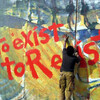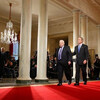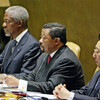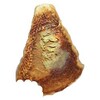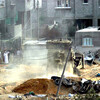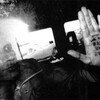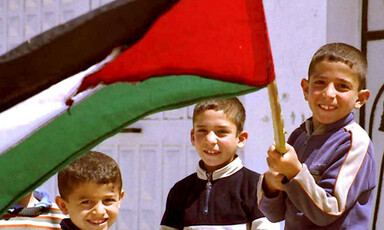
Flags in Palestine
Bethlehem, Palestine 18 November 2004
“I suddenly remember that some twenty years ago, in the 1980s, the Israelis forbade the Palestinians to even color the Palestinian flag, let alone to hoist it in the streets. The flag was considered a danger to public order. During the first Intifada Israeli soldiers forced Palestinian citizens to paint over Palestinian flags that covered the walls of the streets. Mary still remembers those days very well. Painters sometimes circumvented the prohibition by showing a Palestinian salad containing the colors of the flag: black and green in the olives, red in the tomatoes, and white in the cheese. Or women’s embroidery containing those colors.” Toine van Teeffelen reports from Bethlehem. Read more about Flags in Palestine
